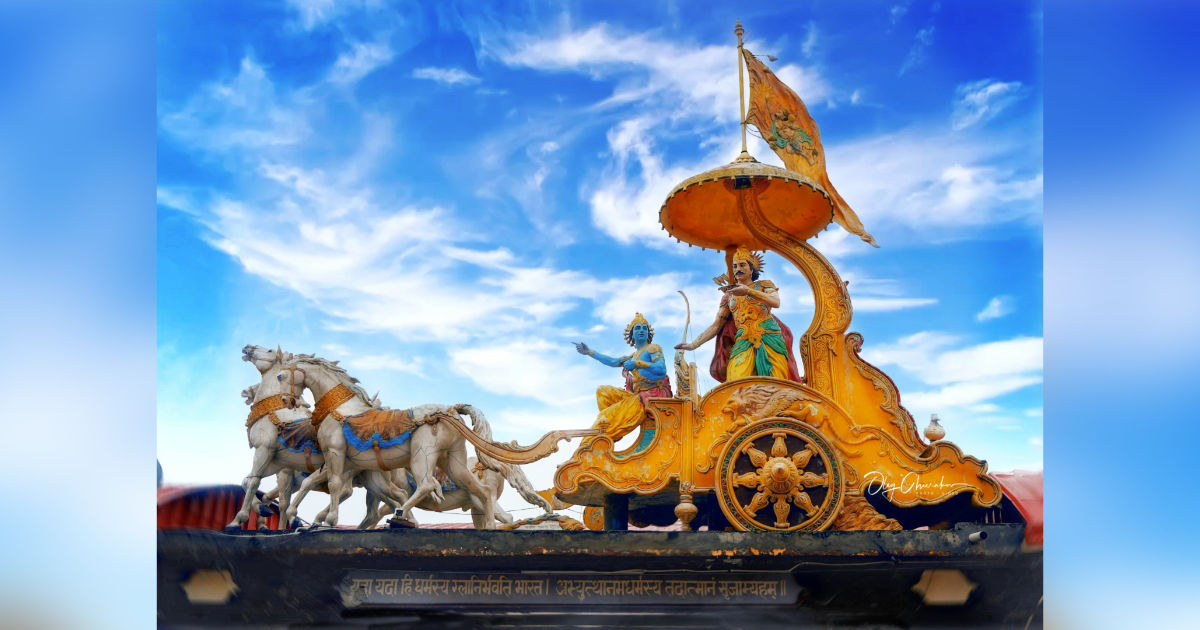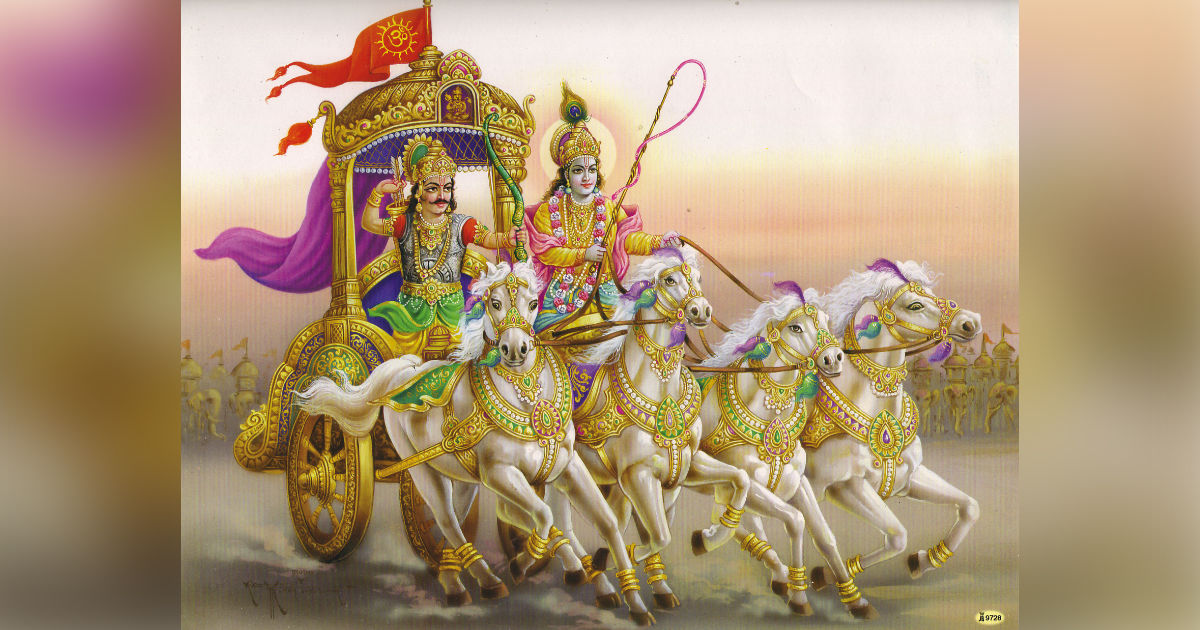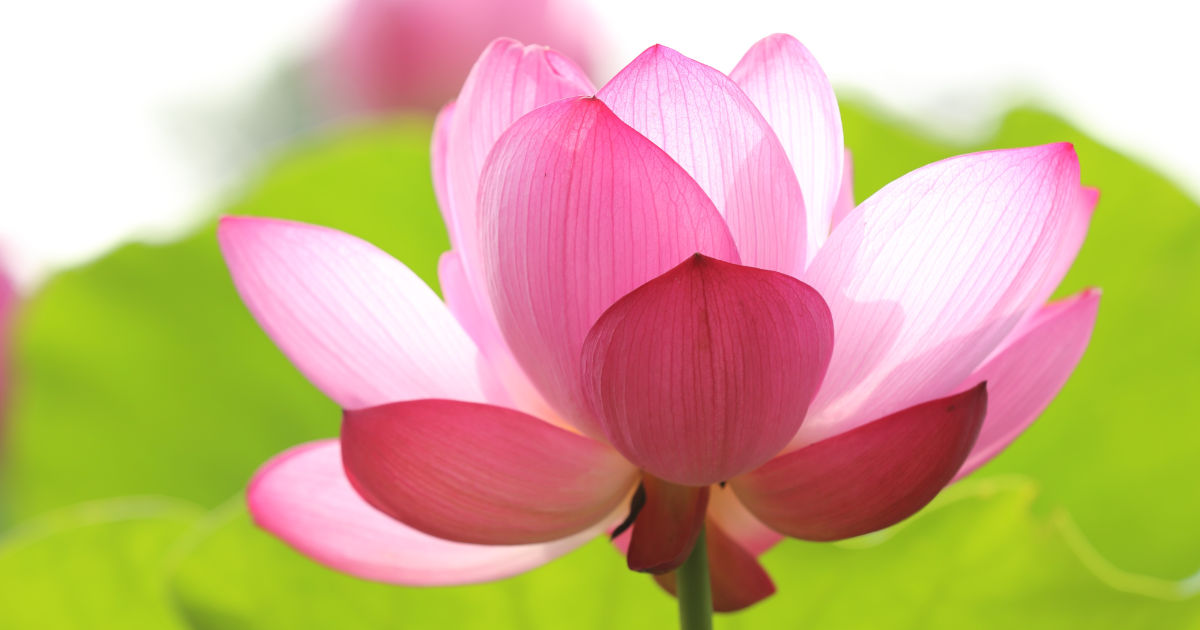Feel more sense more, let your heart function. The intelligence of the heart creates poetry in your life, gives dance to your steps, makes your life a joy… a festivity, a laughter… It makes you capable of love, of sharing. That is true life. – Osho
Tag Archives: bhagavad gita
841 – Chapter 8, Verse 12 Bhagavad Gita
Sarva-dvarani sanyamya mano hridi nirudhya cha
Murdhnyadhayatmanah pranam asthito yoga-dharanam.
All the gates of the body restrained, the mind confined within the heart, one’s life force fixed in the head, established in concentration by Yoga. Continue reading
840 – Three levels of self-understanding
The Bhagavad Gita talks about three levels of understanding ourselves.
The first is knowing what one is supposed to do (Swadharma). Swadharma is a term from sva: proper and dharma: law, duty in Hinduism. According to the Gita, Swadharma is to act in harmony with one’s inborn nature for oneself and society. Continue reading
809 – Water is life
Turned into strife.
Water makes up 60% of our bodies. On Earth, it appears as lakes, rivers, seas and oceans and it covers 71% of the earth’s surface. Water also exists in the air as water vapor. Currently 44% of all wastewater returns to earth untreated. This means that all our waste (human, household sewerage, toxic and medical) is released directly into the planet’s ecosystems.
We have forgotten what water means. Continue reading
790 – Do we understand the meaning of forgiveness?
So, watch yourselves. If your brother or sister sins against you, rebuke them; and if they repent forgive them. Even if they sin against you seven times in a day and seven times come back to you saying: ‘I repent, you must forgive them.’ – Matthew 5:23—24
Therefore, if you are offering your gift at the altar and there you remember that your brother or sister has something against you, leave your gift there in front of the altar. First go and be reconciled to them; then come and offer your gift. – Colossians 3:13
Bear with each other and forgive one another if any of you has a grievance against someone. Forgive as the Lord forgave you. – Bhagavad Gita 16.3
734 – What are the 3 types of happiness?
In the Bhagavad Gita.
Lord Krishna said that there are three types of happiness and spontaneous bliss through the gunas. The gunas comprise the reason of our existence. Continue reading
724 – Morning has broken
Dear ones, after my emergency surgery, I got burning fever which leaves one in a trance. I think of the great musicians, who were in a state of trance when creating music. I am barely conscious but my favourite hymn comes into my mind “Morning has Broken”. Please listen to it. Continue reading
719 – Freedom from what?
True liberation is freedom from attachments, desires and fears. It is the Yogic path which will lead us. The passage to Nirodha, to the state of Samadhi is not an easy voyage. It requires sadhana, self-discipline and wholehearted commitment. The change from tamo guna and rajo guna to sattva guna is a basic step. Continue reading
702 – Are we all equal?
Women, men and non-binary. I am addressing all of you, dear ones. What images do we have of ourselves? The image of men has not changed at all. They can be dressed in fine clothes with gold fountain pens in their pockets and brief cases made of the finest fabrics. Women and non-binary are the ones, whose image keeps changing. Continue reading
688 – Which comes first?
Which comes first? Desire or anger? Desire is an intense feeling of wanting, possessing. Anger is rage, fury, wrath. Desire can be converted into anger.
Arjuna asked Krishna, how have desire and anger come into existence? What makes them grow? What is their nature and what is their role? How are they born? What is the cause of their growth? What is their nature? What is their effect, when they are full blown? Continue reading
681 – God’s Will
Who can question God’s will? It is the most powerful force, which rules and conducts every single activity, form, formless, visible and invisible. Maya is his play and when we are under the influence of maya, we become remote from divine will. Continue reading
635 – Bitter pills in life
What is the definition of sadhana? Sadhana means a dedicated practice. It originates from the Sanskrit word, sadhana (dedication) to an aim, from sadh bring about. It refers to a daily spiritual practice. Technically it represents a disciplined surrendering of the ego, in which the practitioner uses tools such as asana, pranayama, meditation and chanting on a daily basis. Continue reading
620 – Yoga is within us
Swami Sivananda’s mission and vision was to make people aware of the divine life. He said that material stuff was only one end of the spectrum. In order to experience the evolution of our consciousness, we had to live a healthy life. A healthy life was a balanced body and mind. Continue reading
615 – The Creator is within you
There are seven seas within this water pot (body)
Some are sweet, some are salty.
In this body there are nine hundred thousand jewels,
Some are emeralds, some are diamonds, some are pearls.
O avadhoot! There is blinding darkness within this pot.
The creator is within. – KabirdasHaving become the fire of life, as Vaishvanara, I (atma) reside in the body of all living beings, and united with Prana and Apana, it is I who digest and assimilate the four kinds of food. – Bhagavad Gita (15:14) Sri Krishna
583 – Accept and respect your body and soul
Guna means virtue and each one of us is blessed with three gunas. They emerge from Prakriti creating the essential aspects of all nature—matter, energy and consciousness. These are tamas (darkness and chaos), rajas (activity and passion) and sattva (beingness and harmony). These gunas are constantly in flux and they are responsible for creating maya (illusion). As human beings we can consciously alter our levels of gunas in our body and mind. Continue reading













